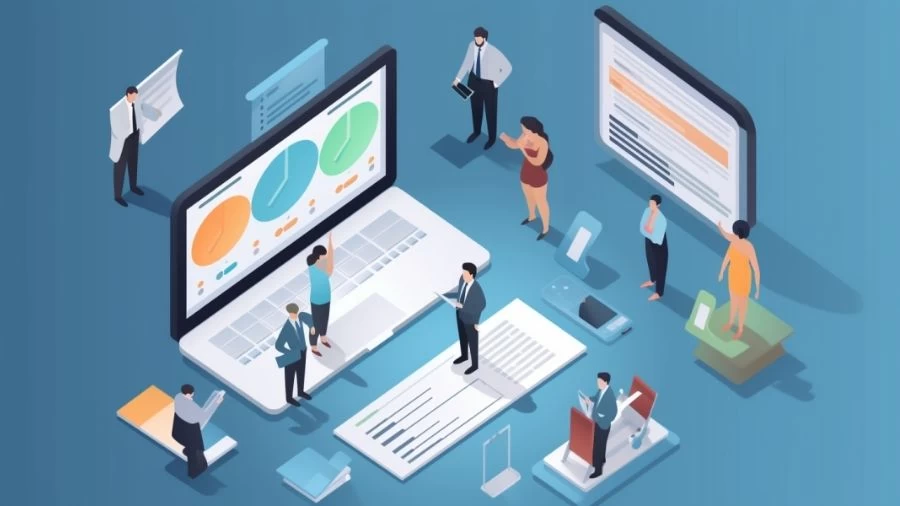
What Credit Score is Needed to Get a Business Loan?
The credit score required for a business loan varies widely among lenders, with online platforms often accepting scores as low as 500, while traditional banks may require scores of 680 or higher.
by Kowsalya
Published Oct 17, 2023 | Updated Oct 17, 2023 | 📖 7 min read
What Credit Score is Needed to Get a Business Loan?
The credit score required to secure a business loan is a variable factor contingent upon both the lending institution and the nature of the loan application. The article underscores the diversity in minimum credit score prerequisites across different lenders.
Online lending platforms often exhibit a more lenient approach, with some accepting applicants with personal credit scores as low as 500. In stark contrast, conventional financial institutions, such as banks, maintain stricter standards, stipulating a minimum credit score that may extend up to 680 or higher.
In essence, the spectrum of credit scores deemed acceptable for business loan approval spans from 500 to 680, and potentially beyond. The variation arises from the distinct risk appetites of different lenders and the specific requirements of various loan programs.
Hence, it's crucial for aspiring borrowers to align their credit score expectations with the specific lender and type of business loan they intend to pursue, understanding that flexibility and criteria can differ significantly in the financial landscape.
What is a Business Loan?
A business loan is a financial instrument that provides qualified businesses with the capital they need to support their operations, expand, or invest in essential resources. These loans are offered by various sources, including traditional banks, online lenders, and credit unions, and they serve a crucial role in helping small and large enterprises meet their financial needs.
Business loans come in different forms, including term loans, lines of credit, and SBA loans, each tailored to specific business requirements. Borrowers are expected to repay the loan amount, along with interest and fees, over a predetermined period.
How Does Business Loans Work?
Business loans work by providing entrepreneurs with the necessary financing, either as a lump-sum payment or a credit line. In return, the borrowing business commits to repaying the borrowed amount over time, accompanied by interest and fees. The repayment structure can vary, with some loans requiring daily, weekly, or monthly payments until the debt is fully settled.
Business loans are categorized into secured and unsecured loans. Secured loans necessitate collateral, which the lender can seize if the borrower defaults. Collateral can include real estate, equipment, or other valuable assets. On the other hand, unsecured loans do not require collateral, but they may involve a personal guarantee, where the borrower agrees to personal liability if the business fails to meet its repayment obligations.
These loans are used for a range of purposes, including covering startup costs, financing commercial real estate projects, managing day-to-day cash flow, debt consolidation, equipment and inventory purchases, business expansions, franchising, marketing, and refinancing. It's important to note that business loans are not typically meant for personal expenses, such as residential home purchases or personal vehicles, but are instead intended to support business-related needs.
Set sail with MarketsHost, where finance and business insights guide your journey to success.
What Are the Types of Business Loans?
There are various types of business loans available to cater to different financial needs and situations. Here's a closer look at the common types of business loans:
SBA Loans (Small Business Administration Loans)
- SBA loans are government-backed loans designed to support small businesses. The SBA doesn't directly lend money but provides guarantees to lenders, reducing their risk. These loans are known for competitive interest rates and extended repayment terms, making them ideal for long-term financing. However, they come with strict qualification requirements and a potentially lengthy application process.
Term Loans
- Business term loans are traditional loans repaid over a set period, usually with fixed monthly payments. They can be obtained from traditional banks or online lenders. These loans typically have terms ranging from a few months to 10 years, offering flexibility in loan amounts and repayment schedules.
Working Capital Loans
- Working capital loans provide short-term financing to cover day-to-day operational expenses like payroll, inventory, and utilities. These loans help businesses maintain a healthy cash flow, particularly in seasonal industries. Loan terms can vary depending on the specific financing you choose.
Business Line of Credit
- A business line of credit operates like a credit card for businesses. It provides a revolving credit limit that businesses can draw from as needed. Interest is only paid on the amount borrowed, and repayment terms are flexible. The draw period typically lasts 12 to 24 months, after which a repayment period begins.
Merchant Cash Advance (MCA)
- MCAs are quick sources of short-term financing. Business owners receive a lump sum in exchange for a percentage of future sales receipts. Repayment is often made through daily or weekly deductions from sales or ACH payments. MCAs are known for their streamlined process but can be expensive due to high factor rates.
Invoice Factoring
- This type of financing is beneficial for businesses that use invoices to bill clients. Invoice factoring involves selling outstanding invoices to a factoring company in exchange for an advance, often 70% to 95% of the invoice value. The factoring company is responsible for collecting the invoices and paying the remaining balance to the business, minus factoring fees.
Equipment Financing
- Equipment financing helps businesses acquire necessary equipment, whether small electronics or large machinery. Lenders often finance a substantial portion of the equipment's cost, typically between 80% and 100%, with businesses providing a down payment. Terms can range from three to ten years.
How to Qualify for a Business Loan?
Qualifying for a business loan involves meeting various criteria set by lenders. The specific requirements can vary depending on the lender and the type of loan you're seeking, but there are some common factors that can impact your eligibility for a business loan. Here are the key steps and considerations on how to qualify for a business loan:
Business & Personal Credit Scores
- Lenders typically assess both your personal and business credit scores to evaluate your creditworthiness.
- Maintaining a good personal credit score is essential, as it can influence your loan approval and interest rates.
- A FICO score above 670 is generally considered good for personal credit, while a business credit score of 80 to 100 is favorable in business credit scoring models like D&B PAYDEX.
Annual Business Revenue & Profit
- Lenders often have minimum annual revenue requirements, and some may also look at monthly revenue.
- You may need to provide bank statements, income tax returns, and profit and loss statements to confirm your business's financial health.
Time in Business
- The length of time your business has been operating can affect loan approval. Traditional lenders might require a minimum of two years in business, while online lenders may consider businesses with as little as six months to a year of history.
- Time in business requirements can vary depending on the specific type of loan, so check with your lender.
Debt-to-Income Ratio (DTI)
- Lenders may review your debt-to-income ratio (DTI) to assess your ability to take on additional debt.
- Calculate your DTI by dividing your monthly debt payments by your gross income. Keeping your DTI at or below 43% is generally advisable.
Debt-Service Coverage Ratio (DSCR)
- For some loans, lenders evaluate the debt-service coverage ratio (DSCR), which measures your business's net operating income in relation to total annual debt.
- DSCR requirements can vary, but SBA loans, for example, require a minimum DSCR of 1.15.
Collateral for Secured Loans
- Some loans are secured, requiring you to pledge collateral, such as business assets or personal property, to back the loan.
- Collateral requirements can vary based on the specific loan and lender. Be prepared to provide collateral if applying for a secured loan.
Type of Industry
- The industry your business operates in can influence loan eligibility. Some lenders may not work with certain industries, so check with the lender regarding your industry's eligibility.
Business Plan (for Startups)
- If you're a startup, lenders may request a detailed business plan. This plan should outline financial projections, the purpose of the loan, industry outlook, competitive analysis, and a five-year cash flow forecast.
- The U.S. Small Business Administration (SBA) website offers sample business plans to help you get started.
What Credit Score is Needed to Get a Business Loan - FAQs
1. What is the minimum credit score needed to qualify for a business loan?
The minimum credit score required for a business loan can vary significantly among lenders.
2. Can I qualify for a business loan with a bad personal credit score if my business credit score is good?
While having a strong business credit score can be beneficial, many lenders will also consider your personal credit score.
3. How can I improve my credit score to increase my chances of qualifying for a business loan?
Improving your credit score involves managing your existing debt responsibly, paying bills on time, and reducing credit card balances.
4. Do all business loans require collateral?
Not all business loans require collateral. The necessity for collateral varies depending on the type of loan and the lender's policies.
5. Are there specific business loans for startups with no credit history?
Some lenders offer business loans specifically designed for startups with limited or no credit history.




